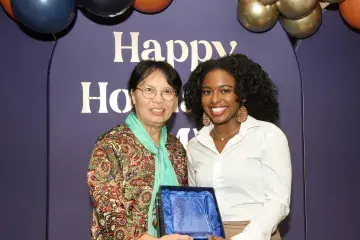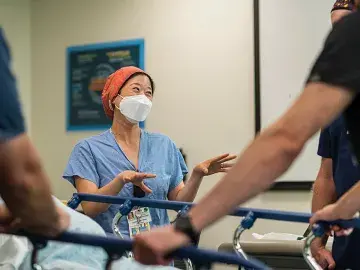Drawing Inspiration from Treating Body and Soul

My first adult job was at a pre-school summer program as a one-on-one aide for a 5-year-old boy with autism. That led me to working at a unique after-school program for kindergarteners through fifth graders that featured Hebrew immersion and exploration of Jewish identity. While there, I found myself investing significant energy into supporting the children who had the greatest behavioral challenges.
During that time, I was introduced to a family friend, an incredible pediatric occupational therapist (OT), who gave me the opportunity to shadow him in the Albany school district. A lot of what he did was play-based, physically engaging, and extremely fun for the kids. Activities included obstacle courses which challenged gross motor skills and balance, handwriting to develop fine motor skills, and games that challenged social skills like taking turns or cognitive skills like focused attention and problem solving.
When I learned about how much developmental theory and clinical reasoning were behind each activity, I was certain that OT would provide me with the platform to blend my interests in working with children, my skills of critical thinking, and my passion for learning through doing.
OT seemed to be a profession where I could help kids with major behavioral challenges by using evidence-based strategies that are playful and engaging and often require both clinical reasoning and creativity. The experience brought me full circle because my first OT client was a 10-year-old boy also with autism in our community participant lab at Samuel Merritt University (SMU).
Researching brain injury
While I entered the Doctor of Occupational Therapy program with an interest in working with children, I kept an open mind. After being exposed to the variety of patient populations that OTs can work with, my interest shifted to working with adults.
I am currently working on my final research project, studying individuals with acquired brain injury — a group of people that I had absolutely no experience with prior to starting this program. Acquired brain injury is any type of injury to the brain that alters functioning, and can be the result of trauma, such as a car accident, or stroke, infection, a tumor, etc. My research looks at what causes adults with brain injury to become physically aggressive and/or violent. My research demonstrates that training staff of a residential long-term care facility for adults with brain injury on common circumstances that trigger aggression will improve their ability to recognize those triggers when they are happening in real-time. Ultimately, the goal of the research is to improve the patient’s quality of life by helping to manage things that provoke them so they can feel safe.
Academic inspirations
My time at SMU has been shaped by those around me. OT is the type of profession that draws some of the most incredible people into it, and my classmates and professors have continued to inspire me every day of the program. I have never been surrounded by such a plethora of people who care so much about helping others, with respect, equity, and genuine compassion.
The most awe-inspiring part of the program for me was working with cadavers in our anatomy course. The experience brought up many feelings and thoughts about the nature of our existence, the relationship of the body and the soul, and also the wonders of the incredible details and intricacies of the human body. I think we often forget about how many millions of things are functioning properly in our bodies at any given moment, even when we are sick, how many innumerable processes are working to fight for survival.
Ready for commencement and the future
I like that commencement means both graduation and beginning. My classmates and I have worked so hard to get to this point and, yet, we are about to begin the profession we have spent the past three years learning about. The truth is that our learning is just beginning because there is still a lot we don’t know.
I hope to initially work in a hospital setting after I become a licensed OT. Working with people when they are at their most vulnerable, as most are when in acute care, is an intimate and powerful experience to share with someone.
As I’m about to graduate, I want to offer some tips to current and future OT students:
Don’t be afraid to ask for help! Nobody gets through this program on their own. You will rely on your classmates more than you could know, the faculty always have office hours, and SMU offers peer tutoring for free.
Also, try to find a good school-life balance, take advantage of the SMU Wellness Club, and find your “spot” on campus where you can settle in and be productive.
Tell us your story. Tell us about a friend. We want to hear about students, alumni, and faculty who are breaking the mold and living SMU's mission.


